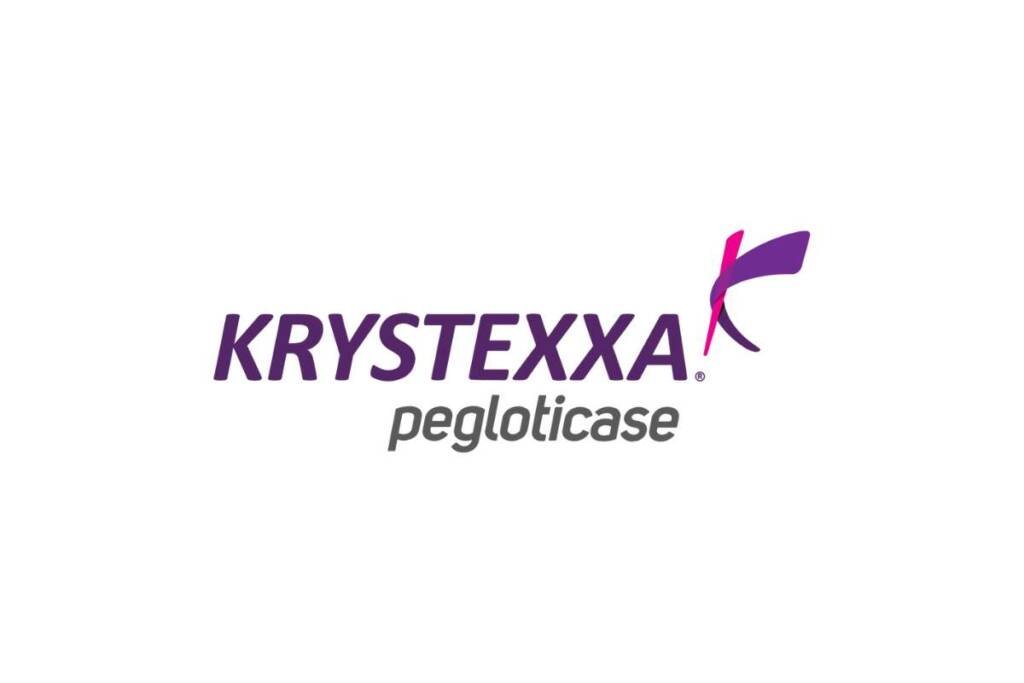Source – Horizon
On July 6, 2023, Horizon Therapeutics announced the publication of long-term data from the MIRROR randomized controlled clinical trial of KRYSTEXXA (pegloticase) injection with methotrexate in ACR Open Rheumatology.
The analysis, which extends the MIRROR trial data up to Month 12, demonstrates a sustained patient response rate and a safety profile similar to the findings at Month 6:
- During Month 12, the patient response rate remained nearly 30 percentage points higher with methotrexate co-therapy. Among patients randomized to receive KRYSTEXXA with methotrexate, 60.0% (60 out of 100) achieved a serum urate (SU) level of less than 6 mg/dL for at least 80% of the time, compared to 30.8% (16 out of 52) of those receiving KRYSTEXXA with placebo (p<0.001).
- There was a 23 percentage-point increase in the complete resolution of at least one topic at Month 12. Among patients with tophi at baseline, 53.8% (28 out of 52) in the KRYSTEXXA with methotrexate group experienced complete resolution of at least one tophus with no new tophus formation or single tophus progression at Week 52 (Month 12), compared to 31.0% (9 out of 29) in the KRYSTEXXA with placebo group (p=0.048).
- Pharmacokinetic and immunogenicity findings remained consistent through Month 12, aligning with the Month 6 data. The data indicated higher KRYSTEXXA serum concentrations during treatment, resulting from lower KRYSTEXXA immunogenicity in those who received co-administration with methotrexate.
- Health Assessment Questionnaire (HAQ) measures showed progressive and clinically meaningful improvements during treatment. The least-square mean change from baseline in HAQ Disability Index was -0.35 in patients receiving KRYSTEXXA with methotrexate and -0.31 in patients receiving KRYSTEXXA with placebo at Week 52. The improvement in both groups was clinically meaningful (meaningful clinically important difference [MCID]: -0.22), with no significant difference between the groups (difference: -0.04 [-0.21, 0.13], p=0.6287). HAQ Pain and Health scores also progressively and meaningfully improved during treatment (MCID: 10). At Week 52, the KRYSTEXXA with methotrexate group exhibited greater improvement in both HAQ Pain (least-square mean: -31.03 vs. -22.59; treatment difference: -8.43 [-15.88, -0.97], p=0.0272) and HAQ Health (least-square mean: -28.85 vs. -18.69; treatment difference: -10.16 [-18.84, -1.48], p=0.0222) compared to the KRYSTEXXA with placebo group.
“Given the damage that uncontrolled gout can cause to bones and joints, as well as its significant impact on a person’s daily life, it is crucial to provide data that demonstrate how a co-treatment approach can quickly lower a patient’s serum urate level and sustain it over time. As clinicians, when we commit ourselves to improving the quality of care provided to people who live with uncontrolled gout, we’re also working to improve their quality of life.”
– Brian LaMoreaux, M.D., M.S., senior medical director, Horizon





























